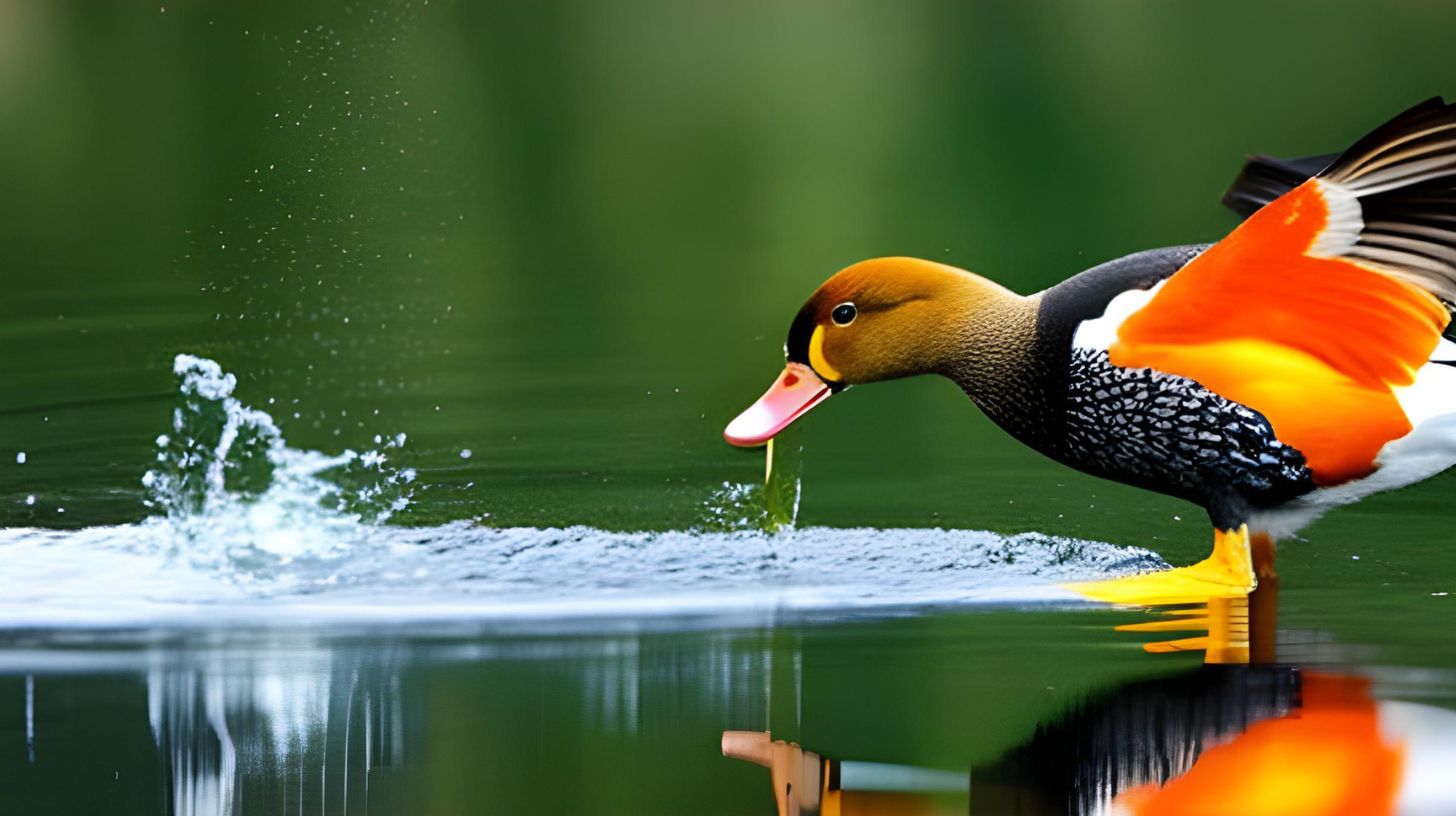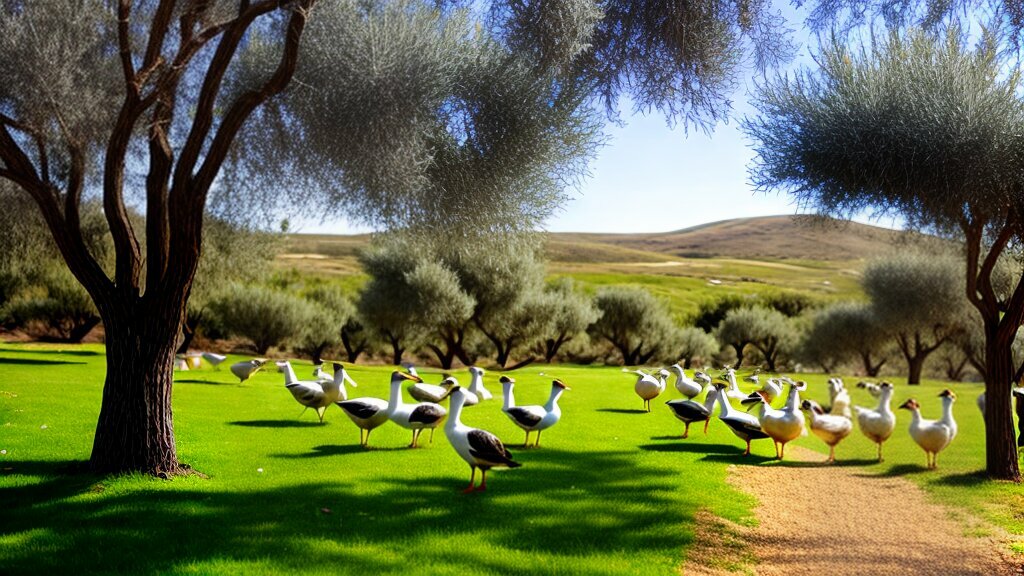Can Ducks Eat Fish? All You Need to Know

Table of content:
- What Kind of Fish Can Ducks Eat Safely?
- Do Wild Ducks Eat Fish as Part of Their Natural Diet?
- Is It OK to Feed My Pet Ducks Goldfish from My Pond?
- What Happens If Ducks Eat Too Much Fish?
- Can I Feed Bread and Fish to Ducks in My Local Pond?
- Should I Include Fish in My Backyard Ducks’ Diet?
- Is Fish Healthy for Baby Ducklings to Eat?
- How Much Fish Should I Give My Pet Duck Per Day?
- What Fish Contains Nutrients Ducks Need in Their Diet?
- Can Too Much Fish Make Ducks Sick?
- Final Thoughts
Ducks are omnivorous birds that can eat a wide variety of foods, including fish. Fish can be a healthy part of a duck’s diet and provide important nutrients. However, there are some things to consider when feeding fish to ducks. This article will explore the following questions:
What Kind of Fish Can Ducks Eat Safely?
Not all fish are created equal when it comes to duck diets. Ducks can safely eat smaller freshwater fish such as minnows, bluegills, and perch. These types of fish contain nutrients like protein and omega-3 fatty acids that are beneficial for ducks.
Larger fish with sharp spines or prickly fins like catfish and bullheads can harm a duck’s esophagus when swallowed. Saltwater fish like tuna can also be too high in fat for ducks. Avoid giving ducks any raw fish caught from polluted waters as well.
When considering feeding fish to ducks, freshwater fish like tilapia, trout, and panfish are good choices. Remove any large bones, fins, tails or heads before feeding to reduce choking hazards. Only give ducks what they can swallow easily.
Do Wild Ducks Eat Fish as Part of Their Natural Diet?
In the wild, most ducks do consume small fish and other water-dwelling prey as part of their omnivorous diet. Mallard ducks, in particular, are opportunistic feeders that will eat insects, plants, snakes, frogs, tadpoles, and small fish in the wild.
A duck’s bill is ideally adapted for straining tiny plants and animals from mud or the surface of ponds and streams. Wild ducks have been observed diving underwater to catch fish and invertebrates. Their varied diet provides balanced nutrition.
However, domestic ducks that live on farms or as pets don’t necessarily need to eat fish. They can get nutrients from poultry feeds, veggies, fruits, and treats. Talk to your vet about the best diet for your pet duck’s needs.
Is It OK to Feed My Pet Ducks Goldfish from My Pond?
It’s generally not recommended to feed pet ducks goldfish from your pond. Goldfish are larger bodied fish with long, flowing fins that can present a choking risk to ducks.
Young ducklings may be able to manage small feeder goldfish. But for adult ducks, goldfish pose risks. Goldfish have pointy fin rays that can lodge in a duck’s throat. Eating a large goldfish may block a duck’s esophagus and restrict breathing.
Your pet ducks will be better off eating chopped vegetables, poultry starters, crushed eggshells, and treats like mealworms. Leave your ornamental pond goldfish alone and feed your ducks safer foods from their normal diet.
What Happens If Ducks Eat Too Much Fish?
Feeding ducks too much fish can cause dietary issues. Fish are very high in protein and fat compared to the vegetables and plants that make up more of a duck’s natural diet. Excessive protein and fatty foods can lead to weight gain and liver problems in ducks.
Eating too much fish may also cause nutritional deficiencies since ducks are missing out on important vitamins and minerals from greens, seeds, and plant foods. Vitamin E, B vitamins, and calcium are commonly deficient.
Signs of a duck eating too much fish include loose droppings, diarrhea, weight gain, lethargy, and loss of appetite. To correct this, cut back on fish and increase fiber, greens, chopped veggies and duck feed. Monitor portion sizes when feeding fish treats.
Can I Feed Bread and Fish to Ducks in My Local Pond?
It’s best not to feed bread and fish to wild ducks in local ponds for a few reasons. Human foods like bread and fish may contain substances wild ducks are not adapted to digesting. This can cause digestive upset.
Bread and fish also lack the balanced nutrition wild ducks need from their natural diet. Feeding one food item encourages ducks to become too reliant on humans. They may start avoiding foraging for healthier foods.
Feeding ducks can also make them lose their natural fear of humans and become more aggressive about demanding food. This causes issues in public areas.
For the health of wild ducks and water quality, avoid feeding bread and fish in ponds. Ducks will get the diverse nutrition they need by grazing on plants and small critters in nature.
Should I Include Fish in My Backyard Ducks’ Diet?
Feeding small amounts of fish can be part of a balanced diet for backyard ducks. Chopped fish provides protein, omega-3s and B vitamins to support duck health. About 1-2 ounces of fish 2-3 times per week is appropriate.
Stick to mild, boneless fish like pollock, tilapia or cod. Make sure no sharp bones remain. Combine with duck pellets, leafy greens, vegetables, grit and treats.
Avoid feeding only fish to backyard ducks. The vitamins and minerals found in plants, greens, and balanced duck feed are crucial too. Variety and moderation is key when offering fish to backyard duck flocks. Their overall diet should be diverse.
Is Fish Healthy for Baby Ducklings to Eat?
Young ducklings can eat small bits of finely chopped fish for nutrition. From 3-6 weeks old, ducklings require high protein foods for growth and development. Fish, crumbled hard boiled eggs, and insects are good protein sources.
However, fish fed to ducklings should be boneless with any spines or fins removed. Only offer tiny, bite-sized bits appropriate for a duckling’s small bill. Chop the fish into a mushy consistency they can swallow safely.
A healthy diet for growing ducklings includes 20-28% protein from sources like fish, poultry starter feed, and insects along with vegetables, fruits, and greens. Feed a balanced variety but limit high-fat fish to avoid diarrhea.
How Much Fish Should I Give My Pet Duck Per Day?
For full-grown pet ducks, a general rule is feeding 1-2 ounces of fish no more than 2-3 times per week. So a total weekly portion would be about 2 to 6 ounces per duck.
The exact amount can vary based on your duck’s weight, activity level, and what else they eat. Weigh out a daily fish portion to control feeding and avoid overdoing it.
Monitor your pet duck’s droppings and weight. Loose stool or weight gain may indicate too much fish. Adjust portions accordingly and focus more on greens, veggies and duck feed as the dietary foundations.
What Fish Contains Nutrients Ducks Need in Their Diet?
Ducks need nutrients like protein, omega-3 fatty acids, vitamin E, B vitamins, and calcium in their diet. Some good fish choices to provide these nutrients include:
- Salmon – High in omega-3s and B vitamins
- Sardines and anchovies – Calcium-rich small fish eaten whole
- Pollock – Lean white fish with vitamin E
- Mackerel – Provides protein, healthy fats, vitamins and minerals
- Smelt – Small with bones/vitamins left in
- Herring – Good source of omega-3 fatty acids
When feeding fish, variety is best. Rotate different types like oily fish, whitefish, and small fish to give ducks a nutritional boost alongside their normal diet.
Can Too Much Fish Make Ducks Sick?
Yes, feeding ducks excessive amounts of fish can make them ill. The high fat and protein content in fish can cause digestive upset if overfed. Diarrhea, intestinal irritation, and vomiting are possible.
Eating too much fatty fish may also lead to vitamin deficiencies and weight gain in ducks. Fish lacks the vitamins found in greens, veggies and duck feed needed for balance.
Limit fish portions and rely more on duck pellets, fresh greens, chopped fruits and vegetables. Use fish as an occasional treat or topper a few times a week rather than an everyday food.
Final Thoughts
Fish can be a healthy supplemental food for ducks if fed properly. Focus on freshwater fish low in fat and bones. Choose nutritious fish like salmon, tilapia and sardines for added protein and nutrients. Grind up any bones to prevent choking hazards.
Only feed small portions of fish a couple times a week. Combine with lots of greens, poultry feed, produce and grit for balance. Avoid overfeeding fish to prevent weight gain, diarrhea and malnutrition.
With some precautions and moderation, incorporating fish into your duck’s diet can provide benefits. Just be sure not to overdo it, and stick to healthy fresh options to avoid problems.
Welcome. I’m Adreena Shanum, the proud owner of this website, and I am incredibly passionate about animals, especially poultry. I founded adreenapets.com as a labor of love, stemming from my desire to share my knowledge and experiences with poultry enthusiasts worldwide.




